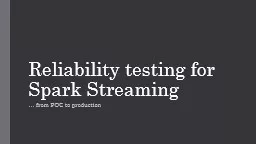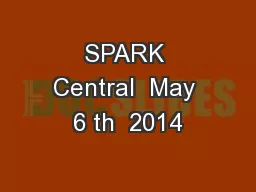PPT-Revalidation... “…should be the spark that sets alight the comprehensive provision
Author : angelina | Published Date : 2024-02-09
Dr Nick Lyons Education for Primary Care 2011 22 360 1 New appraiser training Welcome back to day two Facilitators Organiser Date Venue All images used in this
Presentation Embed Code
Download Presentation
Download Presentation The PPT/PDF document "Revalidation... “…should be the spar..." is the property of its rightful owner. Permission is granted to download and print the materials on this website for personal, non-commercial use only, and to display it on your personal computer provided you do not modify the materials and that you retain all copyright notices contained in the materials. By downloading content from our website, you accept the terms of this agreement.
Revalidation... “…should be the spark that sets alight the comprehensive provision: Transcript
Download Rules Of Document
"Revalidation... “…should be the spark that sets alight the comprehensive provision"The content belongs to its owner. You may download and print it for personal use, without modification, and keep all copyright notices. By downloading, you agree to these terms.
Related Documents














